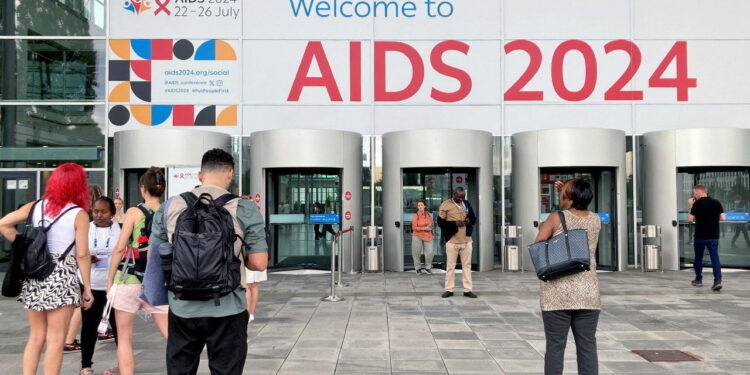Table of Contents
How do major international conferences contribute to the global response to HIV?
Experts from around the world are coming together to tackle the HIV epidemic head-on. With advancements in research and new treatment options, there is a renewed sense of hope that we can finally make significant progress in the fight against HIV.
Major international conferences, such as the International AIDS Conference and the Conference on Retroviruses and Opportunistic Infections, bring together scientists, researchers, healthcare professionals, policymakers, and activists to share the latest developments in HIV prevention, treatment, and advocacy. These gatherings provide a platform for collaboration and knowledge exchange, ultimately driving progress in the global response to HIV.
Joining the fight against HIV is a crucial step toward eradicating the epidemic. Below, we explore the significance of experts convening to tackle HIV and the impact of their collective efforts:
Importance of Experts Convening to Tackle HIV
Knowledge Sharing: Conferences and symposiums provide a platform for experts to share their research findings, best practices, and innovative approaches in combating HIV. This exchange of knowledge fosters collaboration and accelerates the development of effective strategies.
Advocacy and Policy Development: The coming together of experts enables advocacy for policies and initiatives that support HIV prevention, treatment, and support services. It also provides an opportunity to address social and structural factors contributing to the HIV epidemic.
Treatment Advancements: Pharmaceutical companies, researchers, and healthcare providers use these gatherings to showcase new treatment options, breakthrough therapies, and promising clinical trials. This helps in expanding access to cutting-edge HIV treatments.
Community Engagement and Empowerment: Conferences often include community-based organizations and individuals affected by HIV, fostering an inclusive approach to addressing the epidemic. This involvement empowers communities to be active participants in shaping HIV programs and policies.
Collaborative Efforts and Action
The collaboration and collective action of experts in addressing the HIV epidemic have led to significant advancements and achievements:
Developing New Prevention Strategies: Experts have been instrumental in developing and promoting new prevention strategies such as pre-exposure prophylaxis (PrEP) and post-exposure prophylaxis (PEP), which have proven to be effective in reducing HIV transmission.
Improving Access to Treatment: Collaborative efforts have led to improved access to antiretroviral therapy (ART) and other essential medications, resulting in better health outcomes for individuals living with HIV.
Reducing Stigma and Discrimination: Conferences and expert convenings have played a critical role in raising awareness and addressing stigma and discrimination associated with HIV, fostering a more supportive and inclusive environment for those affected by the virus.
Advocating for Funding and Resources: Through collective advocacy efforts, experts have played a pivotal role in securing funding and resources for HIV research, prevention, and treatment programs at the global, national, and local levels.
Firsthand Experiences and Personal Testimonials
People living with HIV, healthcare providers, and activists share their firsthand experiences and personal testimonials during these convenings, shedding light on the real impact of the epidemic and the progress being made. Their stories serve as a reminder of the urgency of the fight against HIV and the importance of continued collaboration and support.
Benefits of Joining the Fight Against HIV
Joining the fight against HIV offers numerous benefits, including:
- Contributing to global health initiatives and making a meaningful impact in the lives of individuals and communities affected by HIV.
- Engaging with leading experts, researchers, and advocates to stay updated on the latest developments in HIV prevention and treatment.
- Building networks and partnerships that can drive innovation and improve the collective response to HIV on a global scale.
Practical Tips for Getting Involved
If you’re interested in joining the fight against HIV, here are some practical tips for getting involved:
Stay Informed: Stay updated on HIV-related news, research, and developments by following reputable sources and attending conferences and expert convenings.
Support Advocacy Efforts: Advocate for policies and programs that promote HIV prevention, treatment, and support services in your community and beyond.
Get Tested: Knowing your HIV status is crucial for prevention and early intervention. Encourage others to get tested as well.
Volunteer and Donate: Consider volunteering with or donating to organizations working on HIV education, prevention, and support services.
Conclusion
As experts convene to tackle the HIV epidemic, their collaborative efforts have the potential to drive significant progress in the global response to HIV. By sharing knowledge, developing innovative strategies, and advocating for policies and resources, these gatherings play a crucial role in advancing the fight against HIV. Joining the fight against HIV offers an opportunity to make a meaningful impact and contribute to the collective goal of ending the epidemic. With continued collaboration and support, we can move closer to achieving an HIV-free world.
Meta Title: Join the Fight: Experts Convene to Tackle the HIV Epidemic
Meta Description: Explore the significance of experts convening to tackle HIV and the impact of their collective efforts, as well as practical tips for getting involved in the fight against HIV.
After several decades of grappling with the AIDS epidemic, the current statistics are still quite grim. According to a report released by UNAIDS on July 22nd, a staggering 40 million people worldwide are currently living with the disease. In 2023, there were 1.3 million new HIV infections and 630,000 HIV-related deaths. However, these figures represent a decrease from 2.1 million (a 39% drop) and 1.3 million (a 52% drop) respectively in 2010. This particular year serves as a reference point for tracking the goal of achieving a 90% reduction in annual new infections and HIV-related deaths by 2030 in order to declare an end to AIDS as a public-health threat. Although achieving this target seems improbable based on current trends, there is some solace in the fact that the overall numbers are moving in the right direction.
The backdrop of the epidemic sets the stage for the 25th International AIDS Conference set to take place in Munich. While these conferences no longer serve as battlegrounds for determining the best course of action, they remain crucial platforms for global researchers, medical professionals, and activists to convene and engage with influential figures. They also serve as a reminder to politicians and citizens in affluent nations, where AIDS has largely faded from public attention, that the fight against the disease persists in many less fortunate parts of the world. This serves as a poignant reminder that funding plays a vital role in combating viral adversaries, just as it does in addressing other global challenges.






